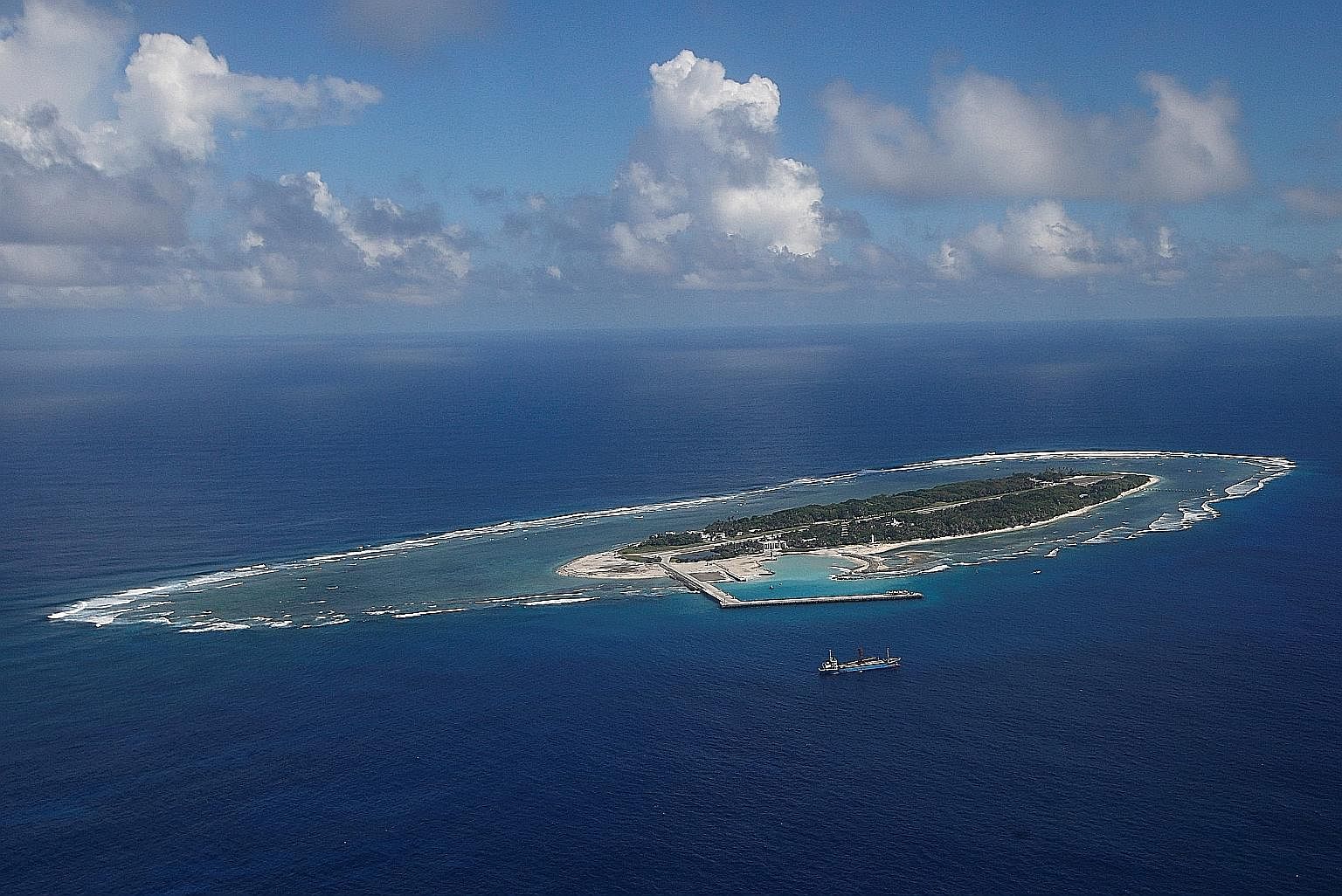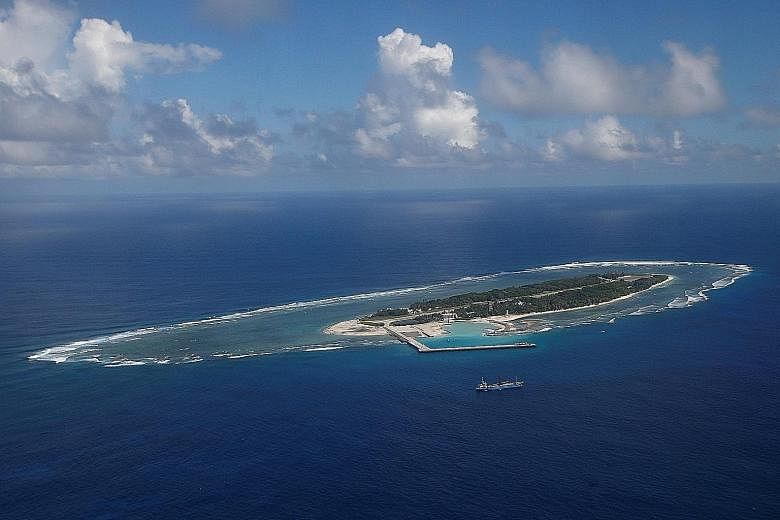Question: You have cast the US as the top wild card of 2017. Will there be a trade war between China and the US this year? If so, who will stand to lose the most? What are their relative strengths and who is better equipped to withstand it?
Ian Bremmer: There will certainly be a sharp escalation in tensions. A full-blown trade war remains unlikely because it won't take long for both sides to size up the significant damage the other can inflict. That said, Trump will surely have to learn some lessons the hard way.
The US has the bigger and more dynamic economy, but the US Congress constrains the president and his authority in a way that doesn't exist in China. Nor are US firms as "patriotic" - or politically loyal - as firms that operate within a state capitalist system like China's. US governing institutions are stronger and more resilient than in China, but their authority to insist that US companies accept pain for the public good is nothing like we see in a state capitalist system. And they are more vulnerable to changes in the public mood.
Q: Since World War II, the US has underwritten Asia-Pacific security. Will Mr Trump, whom you see as unilateralist, hawkish and unpredictable, seek to actually reduce US military presence in the area?
Bremmer: Only at the margins. Realignments take a long time, and Trump is more interested in touting headline "deals" that show that he's willing and able to compel allies/partners to accept a larger share of the costs that come with partnership. That's why I suspect relations with Nato allies will weaken. They don't trust Trump, given his comments on the alliance's value and on Russia. They certainly don't want to help him succeed with the American public. And they don't have the extra money to spend on defence with so many other challenges in Europe at the moment. US partnerships in Asia, especially with Japan, will sustain less damage. Prime Minister (Shinzo) Abe already wants to increase his defence spending.
Q: You have cast the US-China relationship as especially fraught this year and you expect China to test President Trump. In what manner? Do you think Mr Trump will seek to alter the "one China" policy?
Bremmer: No, the "one China" policy won't fundamentally change, but Trump will bring it up again because he thinks he can use it to bolster his bargaining position with Beijing. North Korea may well represent the single biggest risk for US-Chinese relations this year. That's a bigger wild card than any dispute over Taiwan.

Q: You've also highlighted China in transition, do you think President Xi Jinping will become a hostage to the nationalism he has unleashed?
Bremmer: Given the leadership transition at the party congress in autumn, there is a high risk that President Xi will overreact to a security emergency. This is an especially difficult year for Xi to risk appearing weak-willed. The timing for China's President, with Trump arriving on the scene, is unfortunate, to say the least.
Q: You say that US allies, especially in Europe and Asia, will hedge. Will this mean a move away from the US and towards China?
Bremmer: It's more a move towards unilateralism. In Europe, individual governments are going their own way. Germany's Chancellor (Angela) Merkel has been Europe's indispensable leader in recent years, and though we think she'll be re-elected, she'll be weakened by the political challenges she'll face in 2017. Brexit negotiations will grind on for years. Elections in France, the Netherlands and Germany will give populists a new stage. Italy looks set to return to weak coalition governments. Relations with both Russia and Turkey are becoming more complicated and more dangerous. Distracted Europe is becoming more marginalised as a global actor, particularly as the transatlantic relationship becomes less important than at any time since the 1920s.
Q: How strongly will China push its claims in the South China Sea and how is Mr Trump likely to respond?
Bremmer: Beijing doesn't have to push too hard. China's leaders know that overreaction from countries in the region is dangerous. It's safer and easier to increase pressure incrementally while building bilateral economic relations with each country. China will expand its (much-needed) investment in the region. Beijing will use both carrot and stick, and both are significant. Both will bring these countries closer to China.
Q: You say Dr Merkel will win elections but also that there is a powerful populist upsurge to contend with. Do you see any scenarios under which she might lose?
Bremmer: Not really. There is no Marine Le Pen or Geert Wilders in Germany who can pose a serious threat. The Alternative for Deutschland party can play a similar role to Britain's UK Independence Party: It can't win, but it can define the terms of debate. Of all the European leaders, Merkel is the most comfortable, in part because Germans know they benefit from the EU (European Union) and euro zone. Populism in Germany is therefore a more limited force. But she will be weakened by the concessions she'll have to make along the way. That matters for her leadership in Germany and in Europe more broadly.
Q: What will President Trump's Russia reset look like?
Bremmer: At a minimum, Trump will coordinate his Syria policy much more closely with Russia, and he will push lawmakers in his own party to roll back sanctions. At least in the beginning, he could even go further towards a warming of relations with (Vladimir) Putin. He might formally recognise Crimea as Russian, for example. He will certainly work more closely with the Russians on counter-terrorism intelligence and operations.
But all of this will be extremely controversial inside the United States, even within the Republican Party, and the closer relationship probably won't last very long.
Q: You also warn that this is a year when political management will take precedence over economic reforms in many nations. Here, you include India, among the world's fastest-growing economies. Will Prime Minister Narendra Modi be able to usher in the ambitious goods and services tax reform?
Bremmer: Yes, but that's already essentially in place, even if it takes a little extra time to implement this year. It's unlikely that we'll see much else in ambitious reform from India in 2017. He's going into campaign mode for a series of crucial state elections this year. And it's only after the next national election that Modi has any hope of significant progress on labour or land reform, the two areas of change that India's economy needs most. He's done about as much as a prime minister can without some opposition support within the Upper House of Parliament.
Q: You have not noted terrorism as a risk. Why? What do you see happening with the Islamic State in Iraq and Syria (ISIS) in Syria?
Bremmer: Actually, we have. Terrorism is an important part of the risk we believe that technological change will pose for the Middle East this year. ISIS will lose more significant ground in Syria and Iraq in 2017, but the group continues to pose an enormous challenge as a network across the region, in part because of its increasing sophistication in cyberspace and social media. And with the dispersal of ISIS fighters, we see heightened vulnerability for the region as a whole, for Europe, for South-east Asia, for Russia, for East Africa, and to a lesser extent for the United States. It's clear that Western military responses continue to target the group itself, rather than its influence. That's like a doctor treating the symptoms of illness rather than the illness itself.
Q: If there is an attack by militants on US soil, how will President Trump's response differ from Mr Obama's?
Bremmer: The direct response will be very similar to Obama's. It will be primarily military, with targets determined by assessments of which group is responsible for the attack. It will involve enhanced surveillance, the use of drones, and the dropping of bombs. Trump will care less than Obama about top-level coordination with US allies. But the biggest difference will be in the political language that Trump will use. Obama used a measured response designed to express civilised outrage. He was careful to avoid language that alienated Muslim allies. Trump won't be careful about any of that. He will alienate Muslims inside and outside the United States and exacerbate political polarisation in the United States. In the process, he will encourage militants around the world to focus less on closer targets and to try to strike the US, American citizens and US interests.
Q: You, like almost everyone else, were off the mark in predicting that Mr Trump would not be the Republican nominee or the president. And you have now cast the Trump presidency as a risk to global stability. But if American policy under President Trump hews close to American interests, is there a chance that a resurgent America can lift the world economy?
Bremmer: Indeed, that was the huge surprise from last year. For 2017, we have cast the Trump presidency as a risk internationally, but not domestically. We do see a decent chance of a return to strong growth in the US economy that's been slowly building for the past several years, and that can absolutely boost the global economy more broadly. But the geopolitical risks that the Trump administration will create, exacerbated by the G-zero world order and its lack of international leadership, have become much more significant.
The world has entered a period of deep geopolitical recession in 2017. That problem will "trump" good news for the US economy.


